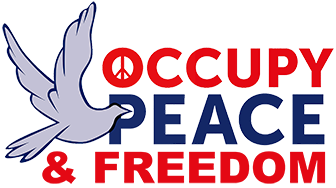Washington’s $2 billion counterterrorism program was supposed to enhance security, but it’s had the opposite effect. May 23, 2022
Written by Nick Turse
The United States has heavily invested in a security partnership with Nigeria over the last 20 years, supplying that country with warplanes, weapons, and training to support its fight against terrorist groups and foster military professionalism among its troops. But a new report finds that despite the assistance, the Nigerian armed forces have not only failed to defeat militants but routinely commit grave human rights abuses in the name of counterterrorism without repercussions from the United States.
From Burkina Faso to Cameroon to Ethiopia, the United States has poured money into allied African militaries that have frequently proven more capable of abusing civilians than protecting them. In each case, accountability mechanisms have been lax and slow to respond to reports of abuses. The report from Brown University’s Center for Human Rights and Humanitarian Studies, the Security Assistance Monitor at the Center for International Policy, and InterAction demonstrates that Nigeria fits the same pattern.
“We know from this and other cases around the world that training in civilian protection and human rights issues isn’t enough to change behavior and prevent abuses if security forces aren’t being held accountable for their actions,” Lauren Woods, the director of the Security Assistance Monitor, told Responsible Statecraft. “Unfortunately, what we see in Nigeria is emblematic of what we see with security assistance and arms sales all over the world.”
Since 2000, the U.S. has provided, facilitated, or approved more than $2 billion in security assistance and military weapons and equipment sales to Nigeria and has conducted more than 41,000 training courses for Nigerian military personnel to support counterterrorism efforts aimed at defeating Boko Haram and the Islamic State’s West Africa Province as well as promoting cooperation on maritime and border security and strengthening military professionalism, according to the report.
Despite two decades spent mentoring the Nigerian armed forces, that military has been regularly implicated in gross human rights violations and crimes under international law, including extrajudicial executions and incommunicado detentions. Between 2011 and 2021, for example, at least 10,000 civilians died in Nigerian military custody after being detained in connection with the Boko Haram insurgency in northeast Nigeria, according to Amnesty International. Last August, Amnesty also reported that at least 115 people in the country’s southeast had been killed by security forces in the previous four months.
The U.S. State Department’s most recent human rights assessment also found credible reports of unlawful and arbitrary killings, forced disappearances, and cruel, inhuman, or degrading treatment or punishment, among many other crimes, by the Nigerian government.
The failure, despite efforts by the U.S. government and Nigerian military leadership, to curtail these rampant human rights violations indicates, says the new report, “that trainings provided by the U.S. and others have been insufficient” and that the United States has demonstrated “apparent limited capacity to shape the conduct of Nigerian security forces, notably on best practices to minimize civilian harm and follow up to allegations of abuse.”


Recent Comments